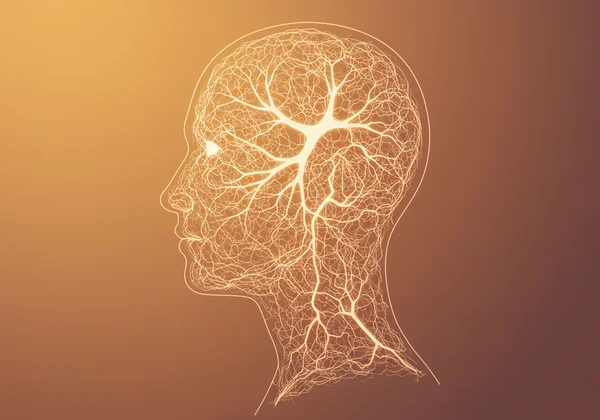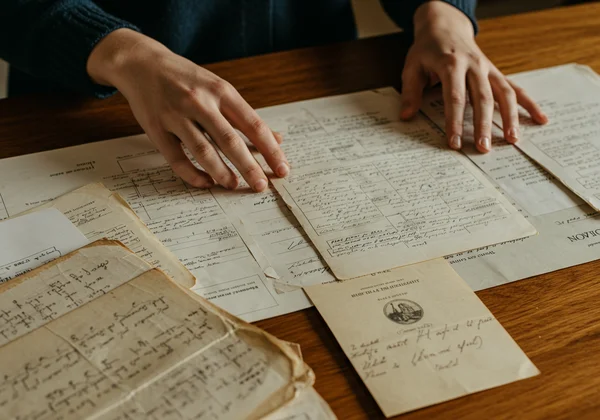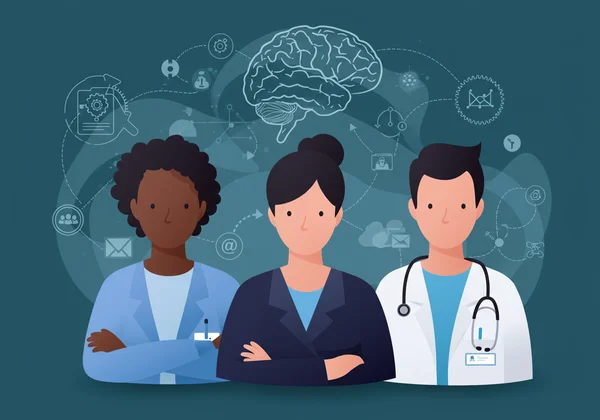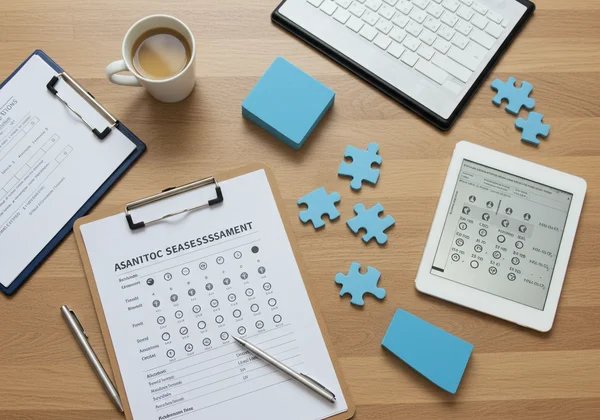Neurodivergent Test & Diagnosis Process: Your Step-by-Step Guide
September 15, 2025 | By Morgan Hayes
Feeling a sense of "otherness" or recognizing unique patterns in your thoughts and behaviors can be the first step toward profound self-discovery. If you've been exploring resources and suspect you might be neurodivergent, the idea of a formal neurodivergent diagnosis process can feel both hopeful and overwhelming. How do you get tested for neurodivergence? This guide is here to demystify the professional assessment journey, offering clarity and reassurance as you explore your unique neurological profile. The path to understanding yourself is personal, and it often begins with a single question.
This journey is about empowerment and self-acceptance. While formal diagnosis is one route, initial self-exploration is a powerful first step. A great place to start is to take our free test to gain preliminary insights into your traits in a supportive, pressure-free way.

Preparing for Your Neurodivergent Assessment
Embarking on the path to a professional assessment begins long before you step into a clinician's office. It starts with self-reflection and gathering the pieces of your personal history. This preparation is not just for the specialist; it is for you. It helps you articulate your experiences and builds a foundation for a more accurate and validating assessment.
Recognizing the Signs: When to Consider Professional Evaluation
The first step is noticing and honoring your own experiences. Perhaps you've always felt you process the world differently from your peers. Maybe you've struggled with social cues, executive functions like planning and organization, or sensory sensitivities. Common signs that lead people to consider an evaluation include a lifelong pattern of challenges in school, work, or relationships that don't seem to affect others in the same way. It could be an intense passion for specific subjects, a unique way of communicating, or a feeling of exhaustion from "masking" or trying to fit into a neurotypical world. If these experiences resonate and you seek clarity or support, a professional evaluation may be the right next step.
Gathering Your History: What Information Will You Need?
A comprehensive assessment relies on a detailed personal history. Before your appointment, it is incredibly helpful to gather information that paints a full picture of your life. Think of yourself as a detective of your own story.
-
Childhood Experiences: Collect old school report cards, notes from teachers, or journals. Ask family members about your early development, social habits, and any notable behaviors.
-
Adult Life: Document your experiences in higher education, your career, and personal relationships. Note patterns of success, challenges, and coping mechanisms you've developed.
-
Specific Examples: Instead of saying "I struggle with focus," try to list specific examples: "I often miss important details in work emails," or "I can't start a task until the deadline is hours away." A neurodivergent test can help you identify and articulate these specific traits.

Finding the Right Specialist for Neurodivergent Diagnosis
Choosing the right professional is one of the most critical parts of the process. You need someone with the right credentials who is also knowledgeable and affirming of neurodiversity. This isn't just about finding someone who can give you a label; it's about finding a partner who can help you understand yourself better.
Types of Professionals: Who Can Diagnose Neurodivergence?
Several types of licensed professionals can conduct assessments for neurodivergence, particularly for conditions like Autism Spectrum Disorder (ASD) and Attention-Deficit/Hyperactivity Disorder (ADHD).
-
Clinical Psychologist: These professionals are trained in diagnosing mental and behavioral health conditions. Many specialize in neurodevelopmental assessments.
-
Neuropsychologist: They specialize in understanding the relationship between the brain and behavior. They often use a comprehensive battery of tests to evaluate cognitive functions.
-
Psychiatrist: As medical doctors, they can diagnose and prescribe medication. Some psychiatrists also conduct thorough diagnostic assessments.

Questions to Ask: Ensuring an Inclusive & Expert Assessment
Before committing to a specialist, don't be afraid to interview them. A good practitioner will welcome your questions.
- "What is your experience with diagnosing adults, specifically for [autism/ADHD]?"
- "How do you account for masking or camouflaging, especially in women or marginalized genders?"
- "What is your approach to the neurodiversity paradigm? Do you view it from a strengths-based perspective?"
- "What does your assessment process involve, and what is the estimated cost?"
Finding a clinician who listens and respects your lived experience is paramount. This is a collaborative process, and you deserve to feel seen and heard.
What to Expect During the Assessment Process
The assessment itself can vary, but it generally involves a series of interviews, questionnaires, and sometimes, cognitive testing. The goal is to build a comprehensive understanding of your developmental history, current challenges, and unique strengths. Knowing what to expect can help reduce anxiety and allow you to be more present during the evaluation.
Understanding Different Assessment Methods & Tools
A thorough neurodivergent screening uses multiple sources of information. You can expect a combination of the following:
-
Clinical Interviews: In-depth conversations about your developmental, medical, social, and academic history.
-
Standardized Questionnaires: You and possibly a family member or partner may be asked to fill out rating scales about your behaviors and experiences.
-
Cognitive Testing: These are tasks and puzzles designed to assess skills like memory, attention, executive function, and information processing.
-
Review of Records: Your evaluator will look at the historical documents you've gathered, such as old report cards.

Specifics of Adult ADHD Assessment
An adult ADHD assessment focuses heavily on identifying a lifelong pattern of inattention, hyperactivity, and/or impulsivity. The evaluator will look for evidence that these traits have been present since childhood and impact multiple areas of your life, such as work and home. They will use diagnostic criteria from the DSM-5 to guide their evaluation, but a good clinician will also understand how ADHD presents differently in adults compared to children. The journey to explore your traits is key to this process.
Navigating Autism Diagnosis Steps
The autism diagnosis steps for an adult often involve a deep dive into social communication patterns, sensory sensitivities, and the nature of your interests. The evaluator will be looking for patterns consistent with the diagnostic criteria for Autism Spectrum Disorder. They will explore how you understand and navigate social situations, how you experience the sensory world, and the role of routines and special interests in your life. It's a process of connecting your present experiences with your past to see a consistent, lifelong neurotype.
After the Diagnosis: Embracing Your Neurodivergent Identity
Receiving a diagnosis can bring a whirlwind of emotions: relief, validation, grief for past struggles, and hope for the future. It’s not an endpoint but a new beginning—a doorway to self-understanding and finding community. The label is not meant to define you, but to provide a framework for understanding your brain and your needs.
Understanding Your Results and Next Steps
Your evaluator should provide you with a detailed report explaining the findings. This report is a valuable tool. It should not only provide a diagnosis but also offer personalized recommendations for support, accommodations, and strategies to help you thrive. Take time to process the information and ask follow-up questions if you need clarification.
Connecting with Support & Resources Post-Diagnosis
You are not alone. One of the most powerful steps after diagnosis is connecting with the neurodivergent community. Online forums, local support groups, and advocates on social media can provide invaluable validation and practical advice from people with shared lived experiences. This is where you can learn about accommodations, coping strategies, and ways to celebrate your neurodivergent strengths. You can start your journey of discovery right here.
Your Path Forward: Embracing Self-Discovery
Your journey toward understanding your neurological profile is a profound act of self-discovery and self-compassion. The formal neurodivergent diagnosis process is a structured path to clarity, but it is only one part of a larger exploration. Whether you pursue a formal diagnosis, continue your self-research, or simply embrace your unique way of being, remember that this is your story to write.
The most important thing is to be curious and kind to yourself along the way. If you’re just beginning to ask questions, our platform offers a valuable and accessible starting point. Discover insights and continue building your path to empowerment and self-acceptance today.
Frequently Asked Questions About Neurodivergent Diagnosis
How do you get tested for neurodivergence as an adult?
As an adult, the process involves seeking an assessment from a qualified professional, such as a clinical psychologist or neuropsychologist. The steps include self-referral or a referral from a doctor, gathering your personal and developmental history, and participating in comprehensive evaluations that may include interviews and cognitive tests.
What are the main signs someone might be neurodivergent?
Signs vary widely but often include lifelong patterns of difference in social communication, learning styles, attention regulation, sensory processing, and intense interests. Feeling like you have to "mask" your true self to fit in or experiencing burnout from navigating a world not designed for your brain are also common indicators.
Can you be neurodivergent without an ADHD or autism diagnosis?
Absolutely. Neurodiversity is a broad umbrella that includes dyslexia, dyspraxia, Tourette's syndrome, and many others. It is also possible to have significant neurodivergent traits that impact your life without neatly fitting the criteria for a specific diagnosis. A good clinician will help you understand your unique profile, with or without a formal label. Starting with a free screening tool can help you explore these possibilities.
What should I do if I suspect I'm neurodivergent but can't afford a diagnosis?
Formal assessments can be expensive and inaccessible. If this is a barrier, you can still find immense value in self-exploration and community. Engage with resources created by neurodivergent individuals, read books, and join online communities. While not a substitute for professional advice, our our online test and other free resources can provide validation and a deeper understanding of yourself.